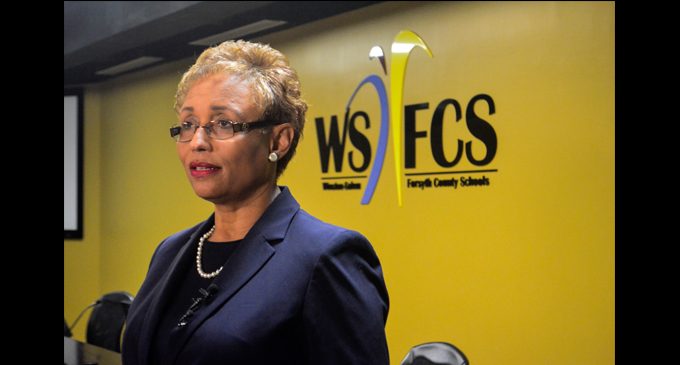Superintendent shares thoughts on HB 798
Dr. Angela Pringle Hairston

Proposed legislation would change how ‘low-performing’ schools are identified
State lawmakers are considering a bill that will change how low-performing schools are chosen for the Innovative School District, the program that identifies which schools are in need of a third-party takeover such as a charter.
The Innovative School District (ISD) initiative was created in 2016 by state legislation to improve student outcomes and low performing schools across the state. The legislation currently in place allows the state to identify schools that are “low performing” or “failing” and in need of a state takeover. Under ISD, schools are considered to be failing if they have a school performance score in the lowest 5% of all schools and did not exceed growth or meet growth in at least one of the prior three years.
In cases where a takeover is needed, the state has the option to select a charter school operator to run the school. The state also reserves the right to implement a reform model that allows school districts to keep control of the school. Reform models usually come with programming changes as well as changes to the teaching staff and administration.
If House Bill 798 passes the N.C. Senate, ISD will be expanded to include middle and high schools; currently the ISD model only applies to elementary schools. There will also be changes to how schools are identified.
Instead of considering all schools that score in the lowest 5% for a third-party takeover, under the new legislation the state will select the school with the lowest performance. Among several other changes, HB 798 will also create a new ranking system that will help determine which schools are at risk.
Last week The Chronicle caught up with Dr. Angela Pringle Hairston, superintendent of the local school district, to discuss Innovative School Districts and the proposed changes. Hairston said when lawmakers make their decision, she hopes they consider some of the challenges these communities are facing. “A takeover process or creating districts of low performing schools is challenging when you’re attempting to lead from afar,” Hairston continued.
“I truly believe schools are better served when they are led and supported by local communities. I feel that local communities care about their children, they care about their teachers and oftentimes these schools need support and wrap-around services and doing those type of things from afar can be quite challenging,” she said. “I think a third party serves a district better and a school better when the third party provides support based on the community. You can’t treat every underperforming school the same. You have to really understand what’s happening in the community.”
Hairston also mentioned the need for flexibility to give school districts options when it comes to school turnaround, such as implementing a reform model instead of going with a charter. She mentioned that Old Town and Ibraham Elementary schools were identified as “low-performing,” but the state allowed the district to go with a reform model.
“Two of our schools were identified … but I think they felt we had the capacity and the energy from our board of education to make those internal changes here. So making those changes here will allow us to keep an eye on the progress and I appreciated the confidence,” Hairston said.
Before taking the reins of the local school district last fall, Hairston worked more than 30 years in public education in Virginia and Georgia, where she became known for helping to improve underachieving schools. Hairston said what makes the situation here unique is the community’s desire to help improve education.
“Community members, the business community, various municipalities, they’re not just concerned about their neighborhood, they’re concerned about our county as a whole and that I appreciate. The resources here, believe it or not, are tremendous,” Hairston continued. “Collectively, I see this energy around supporting our children that I have not seen in other communities.”
HB 798 has already passed the N.C. House of Representatives and the first and second readings in the Senate. When asked if she thinks the legislation will help or hurt the local school district, Hairston said, “As long as there is flexibility and recognition that local schools, using some flexibility, can be successful, I think we’ll be fine.”















